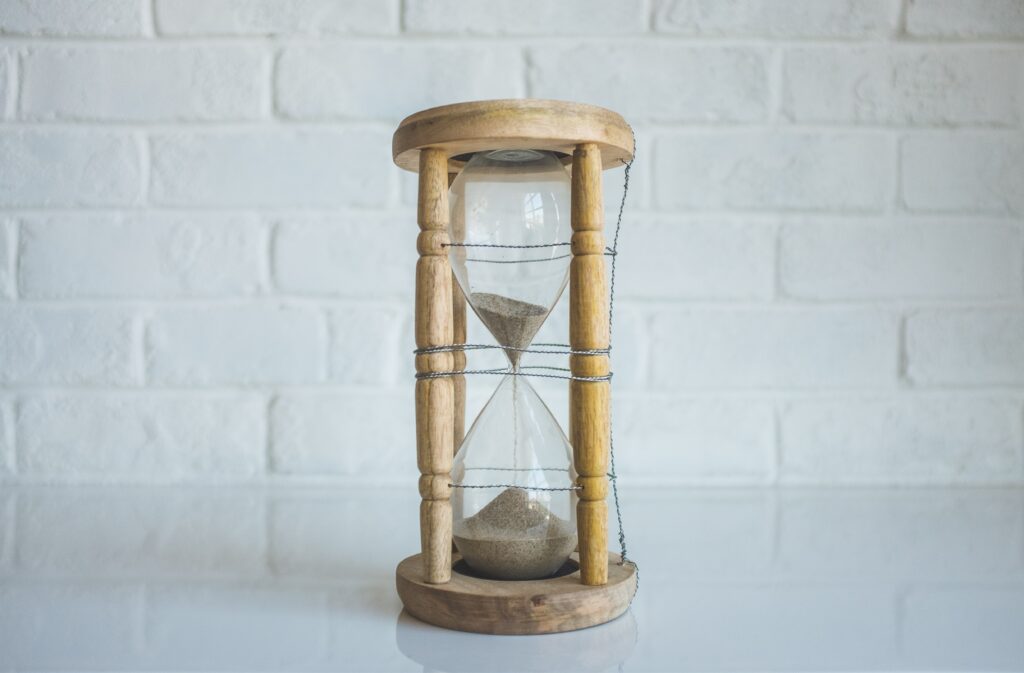As we get older, it’s common to feel like time is passing more quickly. Weeks, months and years seem to fly by faster than they did when we were children. This phenomenon is so widely experienced that it has a name – “time acceleration”. So why does time appear to speed up as we age? There are a few key reasons:
Novelty Wears Off
When we’re young, everything is new and exciting. The world is full of fresh experiences, new stimuli, and big milestones like learning to walk, going to school for the first time, getting your first job, etc. Our brains are wired to pay close attention to novel experiences, because we need to learn from them. This helps time feel elongated. In contrast, as adults much of our day-to-day lives involve routine activities. While routines are important, they don’t command the same level of attention from our brain. Life starts to feel more “been there, done that”, and time speeds by.
Busier Lives
Studies show that people who lead busy, active lives report time going by more quickly than people with a lot of unstructured time. As we age, our lives tend to fill up with more responsibilities – jobs, families, bills to pay, households to run, etc. The more stuffed our schedule is, the faster time seems to fly. Brains are designed to perceive time subjectively, not objectively. So if we pack more into our days and weeks, time itself seems to speed up.
We have written a detailed guide on our site for slowing down your time in a busy schedule. You can learn more here if you are interested on this topic.
With a Time and Motion Study, you can really see where you are spending your most time and what you can do about it.
Changes In Perception
Our perception of time changes as we get older. For example, at age 10, a year feels excruciatingly long – it’s a full 10% of your life! At age 50, a year zips by much faster – it’s only 2% of your life. Research shows that our brains warp time based on the proportion of our life that’s passed. The older we get, the smaller a unit of time feels relative to the total. This “proportionality theory” may explain why summer vacation lasted forever as a kid, while weekends whiz by in a blink as an adult.
Focus On The Moment Declines
Children often spend time fully engaged in the present moment. Think of a toddler enthralled by blowing bubbles, or a kid completely absorbed in a board game. Being fully focused on what we’re doing causes time to seem elongated. As adults, we spend significantly more time engaged in thought – reminiscing about the past or planning for the future. This takes our attention away from the present moment, causing time to feel compressed. Studies show mindfulness practices that anchor us to the present can slow down the subjective feeling of time passing quickly.
More Memories
The more memories we accumulate, the less novel and distinct each individual memory becomes. When looking back, it can seem like “wasn’t that just last month?” because our brains are flooded with many similar memories. Neuroscientists believe memory density directly impacts our perception of how fast time passes. The sparser our memories, the longer the distance feels between them.
Busyness Impairs Memory Formation
Ironically, the same busyness that causes time to feel like it’s speeding up also weakens our ability to form precise memories. When we’re rushing through our days stressed and overscheduled, the brain’s ability to transfer experiences into memories gets impaired. This makes it doubly difficult to keep track of time. We remember fewer details of days that blur together, exacerbating the sensation of time accelerating.
Lack Of Milestones
In childhood and adolescence we have major milestones like first words, first day at school, 18th birthday, graduation, first job, etc. These milestones demarcate time and provide a sense of structure. Adulthood lacks as many clear transitions, so it’s easier to experience “time warp”. Without milestones to bookmark the passing months and years, they flow together seamlessly.
Nostalgia And Boredom
We all have moments where we pine for the past and reminisce fondly about “how fast time has gone”. Nostalgia makes the past seem further back than it really was, because our brains focus on the differences between then and now. Similarly, when we’re bored or impatient, time slows down noticeably. This contrasts with nostalgia compressing the past, making the present feel sped up.
Lack Of Awareness
Do you regularly check a calendar or schedule? Without reminders and prompts, it’s easy to lose awareness of what day or month it is. The less we deliberately track time, the faster it seems to go. Making an effort to be more conscious and intentional with time can reduce the sensation of its accelerated passage.
What Can We Do?
While we can’t actually slow down the clock, we can combat the subjective feeling of time speeding up by:
- Staying present and mindful
- Trying new activities to stimulate your brain
- Varying your routines and habits
- Keeping a journal to enhance memory
- Setting new goals and milestones
- Taking time to reminisce purposefully
- Slowing down and managing busyness
- Savoring meaningful moments
- Practicing gratitude
- Making the most of your days and weeks
The more you infuse life with freshness, variety and new experiences, the more time seems to expand. While we can’t reclaim the endless summers of childhood, we can find ways to make time feel less fleeting by living purposefully.

